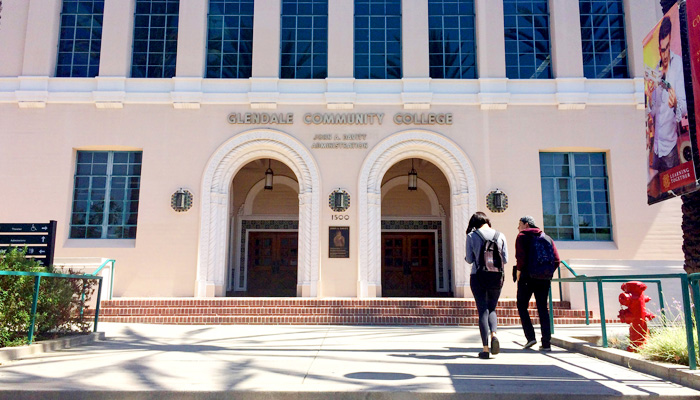How High Is Your DAQ?
Just how knowledgeable are you about disabilities? Take this quick True/False quiz (center) and get your own Disability Awareness Quotient (DAQ.) The answers start below.
TAKE THE QUIZ!
TRUE OR FALSE?
1. T/F: DSPS stands for Disabled Students Programs and Services.
2. T/F: The primary function of using the term ‘disability’ is to designate members of a specific group whose civil rights are protected by law.
3. T/F: The majority of the population with disabilities are either blind/low vision, deaf/hard of hearing, or have limited use of their bodies.
4. T/F: People who use wheelchairs are paralyzed so they cannot participate in activities like swimming or cycling.
5. T/F: Students who are blind automatically have the math requirement waived because they cannot see to solve problems containing graphics such as number lines and geometric shapes.
6. T/F: Students with disabilities get unlimited time to take exams.
7. T/F: Only students who are blind are allowed to audio record class lectures.
8. T/F: If GCC students suspect they have a disability, they can talk to a DSPS counselor about it and their conversation will remain confidential.
9. T/F: Students on the Garfield campus who want to speak with a counselor about their disability have to make an appointment with a counselor on the Verdugo campus.
10. T/F: The percentage of students with disabilities who successfully complete their courses is typically above the percentages of the general student population.
Answers
1. True – It is the mission of the DSPS program here at Glendale College to ensure that students with disabilities are all given equal opportunity to earn a quality education at GCC.
2. True – Disability is really an unfortunate term because of the stigma that comes attached to it. People who have a low disability awareness quotient (DAQ) still believe that having a disability means a person is damaged and incapable of being successful. In truth, a more correct term would be differently-abled.
3. False – Physical disabilities are the most obvious, and so seem to be the prevalent portion of the population. In reality, they constitute about 24 percent of the students with disabilities at GCC. The other 76 percent is made up of what is often referred to as the ‘hidden disabilities.’ These include learning disabilities, Attention Deficit Disorder, Autism Spectrum Disorder, and various other neurological conditions that certainly make learning challenging, though not impossible.
4. False – GCC offers a number of excellent adapted physical education courses; these include self-defense, aquatics, fitness lab, sports and recreation activities, dance and indoor cycling. The aquatics course is offered utilizing the swimming pool at the Rosebowl Aquatics Center.
Students with varying disabilities greatly benefit from these courses by building the strength, endurance, flexibility and dexterity they need to perform in other academic classes. In addition, Glendale College has a Power Soccer team. These athletes, who use power wheelchairs, compete with other teams from the area.
5. False – Students with disabilities are held to the same academic standards as the nondisabled population. They have the same course requirements and are subject to the same academic rigor in order to earn a certificate, degree, or ability to transfer.
6. False – Having unlimited time to take a test would be of little benefit to anyone. If you don’t know the information, you don’t know it, and no amount of time is going to change that. There are a number of disabilities that prevent an otherwise qualified student from completing tests under the standard time limits. Some students may need more time to process the questions, or to retrieve the answers from their memory. Those with attention deficits use the extra time to focus their attention, while those with anxiety issues use it to quiet their emotions.
Students who are blind receive triple the time the rest of the class receives. Most others are allotted double time. Extended time them to demonstrate their mastery of the course material so that they are graded on their abilities, not their disabilities.
7. False – GCC has a Board Policy that confirms it is a reasonable accommodation to allow any student with a disability to audio record classroom lectures. The High Tech Center department of DSPS has a number of software programs and adapted devices for assisting students with disabilities, including note taking assistance.
8. True – If a student feels they are not getting the kind of grades they should be, considering the amount of effort they are putting into a class, they can make an appointment with one of the counselors in the Center for Students with Disabilities (CSD) on the second floor of San Rafael. The counselor will listen to the student’s concerns and together they will decide on a plan of action. The DSPS staff is obligated by law to keep this information confidential.
9. False – DSPS also has a counselor whose office is at the Garfield campus.
10. True – The numbers of students with disabilities who make it through each fall semester and persist through the spring semester has been consistently higher than the averages for the total student population. In addition, they match the total population in number of units they complete each semester and their mean grade point average is equivalent.
Your DAQ Score
8 to 10 Correct – Congratulations; you have an impressively high DAQ! That’s something to be proud of.
5 to 7 Correct – That’s not a great score, but don’t spend too much time being embarrassed. Just by completing the quiz, you have already made strides in raising your DAQ.
0 to 4 Correct – Your DAQ is low. Don’t be alarmed; you just need to spend some time getting educated on the subject of disabilities. For more information, visit: https://tinyurl.com/GCCDSPS
That way, you too will be a Vaq with a high DAQ!

